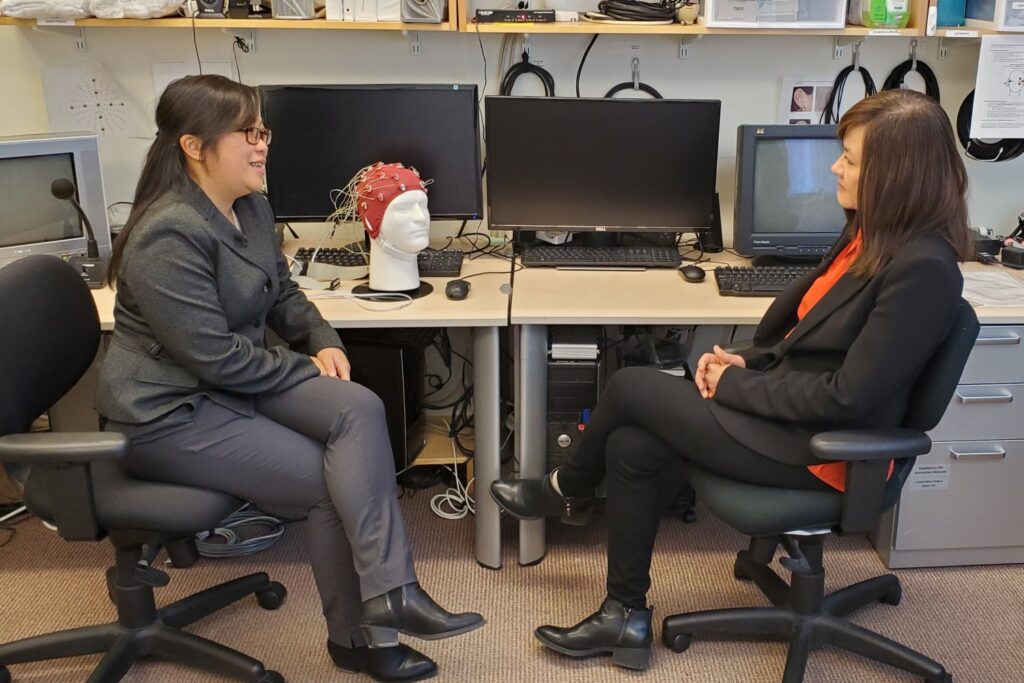
A groundbreaking study has revealed that 40Hz light and sound stimulation may offer long-term benefits for Alzheimer’s patients. Conducted by researchers from MIT, the study followed five volunteers who continued the therapy for approximately two years after an initial clinical trial. The findings indicate that participants with late-onset Alzheimer’s disease maintained higher cognitive function compared to national averages, with significant reductions in tau protein biomarkers for some.
The study’s results are particularly promising for the three female volunteers with late-onset Alzheimer’s, who demonstrated improved cognitive measures and decreased levels of tau proteins. In contrast, the two male participants with early-onset Alzheimer’s did not show significant benefits, highlighting potential differences in treatment efficacy based on disease onset.
Exploring GENUS: A Noninvasive Treatment
The treatment method, known as GENUS (gamma entrainment using sensory stimuli), involves daily exposure to 40Hz light and sound. This noninvasive approach aims to enhance brain wave synchrony and reduce Alzheimer’s-related proteins. The research, led by Diane Chan and Picower Professor Li-Huei Tsai, is the longest-term study of its kind and is currently being expanded through a nationwide clinical trial by Cognito Therapeutics.
“This pilot study assessed the long-term effects of daily 40Hz multimodal GENUS in patients with mild AD,” the authors wrote in Alzheimer’s & Dementia: The Journal of the Alzheimer’s Association. “We found that daily 40Hz audiovisual stimulation over 2 years is safe, feasible, and may slow cognitive decline and biomarker progression, especially in late-onset AD patients.”
Background and Initial Findings
In 2020, MIT initiated an early-stage trial with 15 volunteers to test the potential benefits of 40Hz stimulation. The trial, although interrupted by the COVID-19 pandemic, showed promising results after three months. The recent study examined outcomes for five volunteers who continued the therapy on an “open label” basis, meaning they were aware of the treatment they were receiving.
Participants underwent a series of assessments, including brain wave measurements, MRI scans, and cognitive tests. The study also drew comparisons with national databases to evaluate the treatment’s effectiveness against untreated controls.
Key Outcomes and Insights
The female volunteers with late-onset Alzheimer’s showed positive outcomes in cognitive tests and brain wave responsiveness. Notably, two participants who provided blood samples exhibited significant reductions in phosphorylated tau, a biomarker linked to Alzheimer’s pathology.
“One of the most compelling findings from this study was the significant reduction of plasma pTau217, a biomarker strongly correlated with AD pathology,” the authors noted. “These results suggest that GENUS could have direct biological impacts on Alzheimer’s pathology, warranting further mechanistic exploration in larger randomized trials.”
Despite these promising results, the study noted that early-onset patients did not experience similar benefits, suggesting that the therapy’s effectiveness may vary based on the type of Alzheimer’s disease.
Future Directions and Implications
The research team is now exploring whether GENUS could serve as a preventative measure for those at risk of developing Alzheimer’s. A new trial is recruiting participants aged 55 and older with normal memory but a family history of the disease.
As the study progresses, researchers aim to identify predictors of treatment response, such as genetic and pathological markers. Understanding these factors could enhance the therapy’s effectiveness and broaden its applicability.
Funding for this research was provided by numerous foundations and private donors, reflecting a growing interest in innovative approaches to combat Alzheimer’s disease.
The findings from this study offer hope for new treatment avenues and underscore the importance of continued research in the fight against Alzheimer’s. As the scientific community works to unravel the complexities of the disease, therapies like GENUS could play a crucial role in improving patient outcomes and quality of life.






